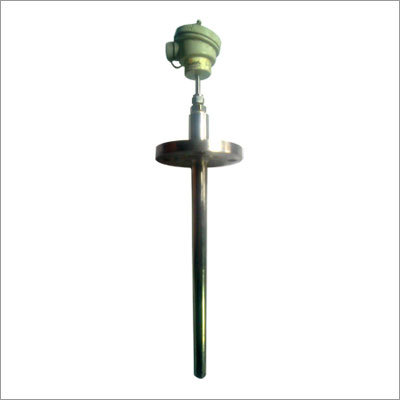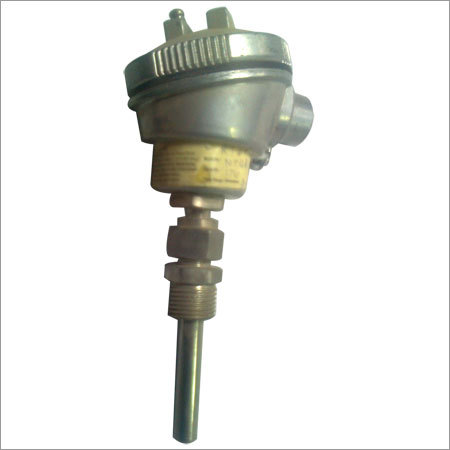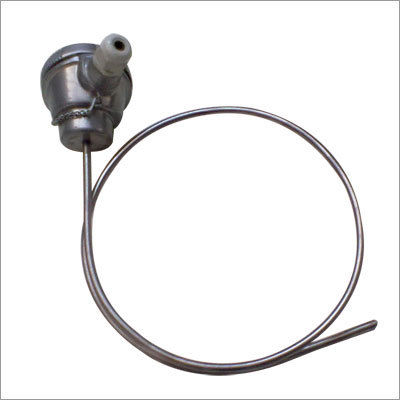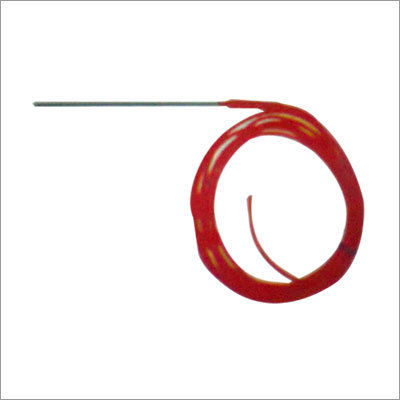Resistance Detectors
Resistance Detectors Specification
- Power Consumption
- Low, <1W
- Cable Length
- Standard 2 m, customizable
- Application
- Automation, Process Control, HVAC, Food & Pharma, Chemical plants
- Sensor Type
- RTD (Pt100, Pt1000 etc.)
- Response Time
- <1.5 sec (in water at 0.4 m/s)
- Wireless
- No
- Mounting Type
- Threaded or Flanged
- IP Rating
- IP65 / IP68
- Sensitivity
- 0.385 /C
- Features
- Corrosion Resistant, High Stability, Fast Response, Easy Installation
- Product Type
- Resistance Detector
- Material
- Stainless Steel / Platinum
- Input
- Resistance (Ohm)
- Function
- Temperature Measurement via RTD Principle
- Usage
- Industrial and Laboratory Measurement
- Accuracy
- Class A/B (IEC 60751 Standard), 0.1C
- Resolution
- 0.01C
- Voltage
- Maximum 30V AC/DC
- Weight
- 120 g (approx)
Resistance Detectors Trade Information
- Minimum Order Quantity
- 1 Piece
- FOB Port
- Udaipur
- Supply Ability
- Piece
- Delivery Time
- 3-20 Days Days
- Packaging Details
- As per product
- Main Domestic Market
- Rajasthan
- Certifications
- ISO
About Resistance Detectors
We are one of the leading manufacturers, suppliers and traders of a quality range of Resistance Detectors. We have well trained workforce to look after every aspect from manufacturing till delivery in order to ensure best quality and durability. Our products are widely used in plastic industries. Temperature range of Resistance Detectors is -0oC to 250oC. in addition to this, our range is available with cable (PTFE/ fiber glass) over braided by SS, cable length as per requirement of our clients and fabrication spring loaded bayonet caps with adjustable with moving slot.
Features:
- Widely used in plastic industries
- Temperature range -0oC to 250oC
- Along with cable (PTFE/ fiber glass) over braided by SS
- cable Length as per requirement
- Fabrication spring loaded bayonet caps.
- Adjustable with moving slot
Customized Measurement Solutions
Select from a range of probe diameters (3 mm, 6 mm, 8 mm, or customizable) and sheath lengths (100 mm to 1000 mm or specified), ensuring you receive sensors tailored for your process requirements. Multiple process connection options are available, suiting threaded or flanged mounting configurations for easy integration.
Exceptional Accuracy and Performance
Achieve precise temperature readings via Class A/B accuracy (IEC 60751 Standard) with a resolution down to 0.01C. The sensors respond quickly in under 1.5 seconds in water flow, making them ideal for dynamic environments, while maintaining low power consumption and high insulation resistance for safe operation.
Durability and Compliance
Manufactured from corrosion-resistant stainless steel or platinum, these RTD sensors can withstand up to 40 bar pressure and harsh chemicals. Full CE marking and RoHS compliance guarantee safe, environmentally-conscious use. The products IP65/IP68 ratings ensure suitability for rigorous environments.
FAQs of Resistance Detectors:
Q: How can I select the appropriate probe diameter and sheath length for my application?
A: The resistance detectors are available in probe diameters of 3 mm, 6 mm, 8 mm, or customizable, and sheath lengths ranging from 100 mm up to 1000 mm, which can also be specified to suit your needs. Consider your installation space, response requirements, and temperature range when making a selection. Our manufacturing team can guide you in configuring the sensor precisely for your process.Q: What industries commonly use these resistance detectors and where are they typically installed?
A: These detectors are used across diverse industries including automation, process control, food & pharma, chemical plants, HVAC, and laboratory measurement. They can be installed in pipelines, tanks, incubators, process vessels, and other environments requiring accurate temperature monitoring.Q: What is the process for integrating these sensors into existing systems?
A: Integration involves choosing the right process connectionG1/4", G1/2", or customized threads or flangeswhich ensures compatibility with your current equipment. Each detector features threaded or flanged mounting types for quick, secure installation. Standard lead wire options (PTFE, Silicone, Fiberglass) and customizable cable lengths allow seamless connection to controllers or data loggers.Q: How do these detectors benefit operational efficiency and measurement accuracy?
A: The sensors offer class-leading accuracy (0.1C), high resolution (0.01C), fast response (<1.5 sec), and high stability, resulting in dependable temperature control and improved process safety. Their corrosion-resistant materials and compliance with international standards reduce maintenance downtime and support continuous, reliable operation.Q: What steps should be taken to ensure proper usage and longevity of the resistance detectors?
A: For maximum performance and durability, ensure that installation follows recommended mounting procedures and environmental specifications such as pressure ratings (up to 40 bar) and IP protection (IP65/IP68). Selecting suitable lead wire material and regularly checking insulation resistance (>200 M at 500 VDC) contributes to long-term sensor functionality.Q: Are these resistance detectors compliant with international standards and environmentally safe?
A: Yes, the sensors are CE marked, RoHS compliant, and manufactured according to IEC 60751 standards, ensuring you receive safe products that meet global regulatory and quality requirements while maintaining low environmental impact.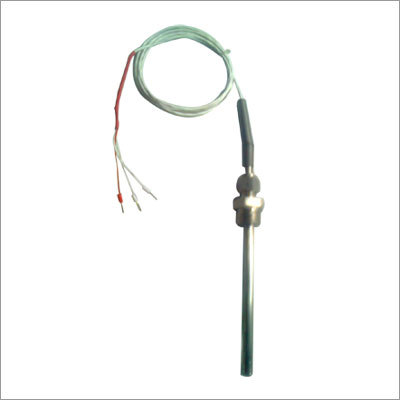

Price:
- 50
- 100
- 200
- 250
- 500
- 1000+
More Products in Resistance Temperature Detectors Category
Platinum Resistance Temperature Detectors
Minimum Order Quantity : 1 Piece
Sensor Type : RTD (Resistance Temperature Detector)
Response Time : < 1.5 seconds
Function : Temperature measurement
Accuracy : Class A, 0.15C at 0C
Sensitivity : Approx. 0.385 /C
Temperature Detectors
Minimum Order Quantity : 1 Piece
Sensor Type : RTD / Thermistor / Thermocouple
Response Time : <2 seconds
Function : Detection and Measurement of Temperature
Accuracy : 0.5C
Sensitivity : High
Industrial Resistance Temperature Detector
Minimum Order Quantity : 1 Piece
Sensor Type : Platinum RTD, typically Pt100 (Class A/B)
Response Time : 5 seconds (in liquid) / 10 seconds (in air)
Function : Accurate temperature measurement through resistance change
Accuracy : 0.1C to 0.5C
Sensitivity : Approximately 0.385 /C (Pt100)
Industrial Temperature Detector
Minimum Order Quantity : 1 Piece
Sensor Type : Thermocouple/RTD
Response Time : < 5 seconds
Function : Temperature Measurement and Monitoring
Accuracy : 0.5% of Reading
Sensitivity : High
We Mainly Deal In Udaipur, Rajasthan.

 Send Inquiry
Send Inquiry Send Inquiry
Send Inquiry
